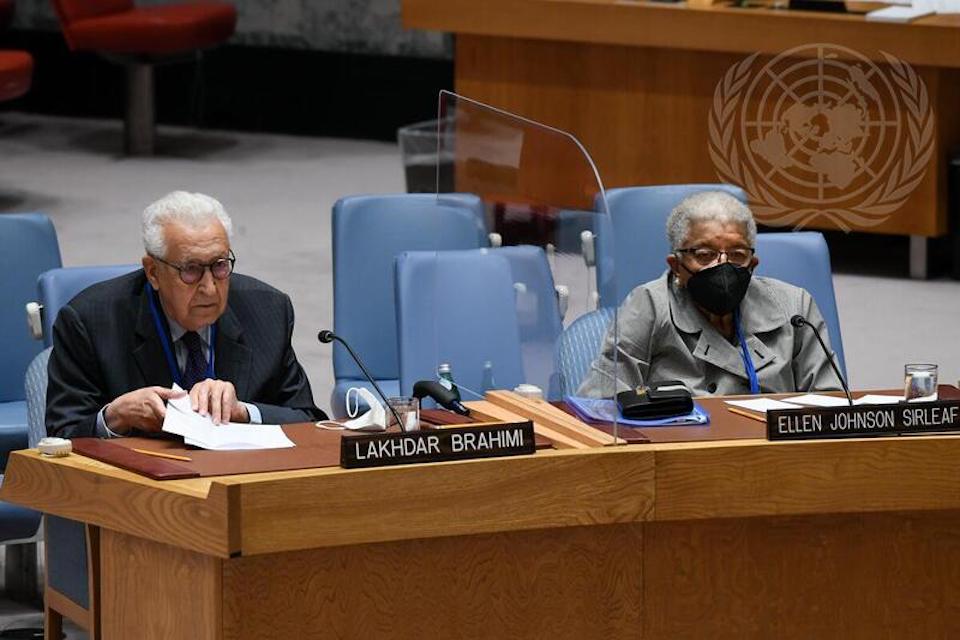The role of the UN Security Council in responding to evolving threats and for conflict prevention
Ambassador Barbara Woodward gave a statement at the United Nations Security Council briefing with the Elders, an independent group of global leaders.

Let me begin by thanking their Excellencies, Mary Robinson and Lakhdar Brahimi, for their briefings today and to welcome too their Excellencies, Ellen Johnson Sirleaf and Ernesto Zedillo. The United Kingdom values the Elders’ views on how the Council can play its part in improving multilateral responses to conflict prevention and evolving threats to international peace and security.
I’d like to focus my intervention on three points – the Council’s response to evolving threats to international peace and security; country specific examples of where the Council can have a real impact; and finally, on the importance of a system-wide approach to conflict prevention.
Madam President, in the 76 years since this Council was entrusted with the responsibility to maintain international peace and security, the nature of the threats we face have evolved. How we respond to new challenges, including climate change and building back better from COVID-19, will shape our world over the next decade and beyond.
As the threats to international peace and security evolve, so too must the Council. We should not self-censor: where there are clear emerging threats to international peace and security we should consider them in a timely fashion. We should respond quicker to the warning signs of conflict and violence, and act earlier to prevent conflict and escalation. We should be proactively in horizon-scanning and early warning, instead of turning a blind eye or delaying until conflicts have already passed a tipping point.
Madam President, there are numerous ongoing crises where a more nimble, creative Security Council response would help people affected by conflict. Arguably, we did not act quickly enough to respond to the conflict in Tigray, but continued and constructive Council engagement can prevent further escalation by encouraging the parties to reach political solutions to the conflict. Such engagement would also support the efforts of the African Union and in this regard, I would welcome the Elders’ views on how the Council can best support the work of His Excellency Olesegun Obasanjo as the African Union’s Special Envoy for the Horn of Africa.
Recent events in Afghanistan have demonstrated too just how vital it is for us to engage on conflict prevention and respond rapidly to changing situations on the ground. The multilateral system and clear, co-ordinated messaging across the international community, including from the Council, will be necessary the Taliban’s actions are consistent with its words. The adoption of resolution 2593 last week provides a strong foundation for the Council to continue to play its part in this vital undertaking.
This Council has been united in condemning violence and calling for the restoration of democracy in Myanmar. However, the situation continues to deteriorate. We welcome the appointment of His Excellency Dato Erywan as ASEAN Special Envoy. It is critical that the Tatmadaw engage with him to make progress on the 5-point consensus and to address the humanitarian situation. We should in this Council keep all options under review to remain engaged in support of a political solution.
Finally Madam President, this Council has primary responsibility for international peace and security, but it cannot act alone. A coherent approach to conflict prevention requires action by the entire UN system, combining humanitarian, development and peacebuilding efforts and in coordination with regional organisations and partners. In this regard, the United Kingdom strongly supports the Secretary General’s commitment to embedding conflict prevention across the UN system and delivering on the Sustaining Peace agenda. By mobilising all the tools at our collective disposal we can maintain lasting, sustainable peace for all.